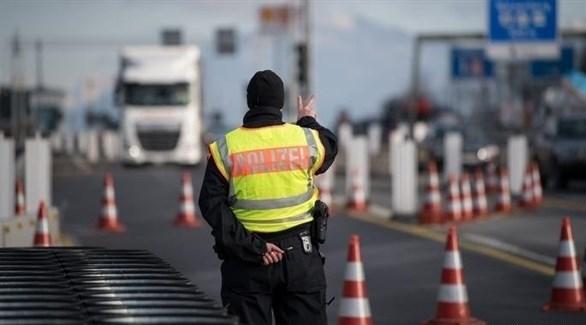
The number of immigrants and asylum seekers arriving in Germany across the Polish and Czech borders is increasing, which leads to great pressure on the border state of Saxony, especially with the rising pace of the Russian-Ukrainian war.
German media reported, based on private sources from the police in the state of Saxony, that during the past weekend, 204 asylum seekers who arrived in Germany across the borders with Poland and the Czech Republic were arrested, meaning that these immigrants are now in the state of Saxony, based on the report, the numbers could be higher.
According to a report by the German newspaper “Bild,” all arrivals submitted requests for protection, and most of them were received in the initial reception facilities in the state of Saxony, while an Iranian, a Moroccan, and an Eritrean asylum-seeker were deported to Poland. A Turkish individual was detained pending a European arrest warrant for him on charges of drug smuggling since 2001.
Only one smuggler who facilitated the illegal entry of migrants across the border was arrested. On Friday, the federal police arrested 50 refugees in Ludwigsdorf near Görlitz, 36 of whom were from Syria and seven from Iran.
For his part, the mayor of the region, Stephan Meyer, of the Christian Democratic Union party, wrote to the Federal Minister of the Interior, Nancy Faeser, asking her for “immediate measures on the part of the federal government to stop the illegal entry of immigrants, and the disturbing activity of smuggling crimes,” according to the “Info Migrants” website, quoting the German newspaper.
“The numerous successes achieved by the police in uncovering smuggling networks unequivocally show that there is an urgent need to work on securing the German-Polish border,” the official said.
Mayer stressed that “it is necessary to stop the flow of illegal immigration in order to ensure the security of the country, and to receive refugees for legitimate reasons only.”
Meyer also asked the federal government to cover the costs of the refugees’ accommodation, considering that, “Görlitz has reached the limit in terms of housing and financial resources.”
It is noteworthy that during the first half of this year, the Federal Police recorded 12,331 cases of illegal entry at the border between Germany and Poland, compared to 4,592 cases during the same period last year. More than 10,000 people came illegally across the Polish border to Germany in the first half of the year, which is much more than across any other route.
Concerns are growing that the outlook for the next few months is bleak, in light of Russia’s intensification of attempts to push refugees to the German-Polish border.





